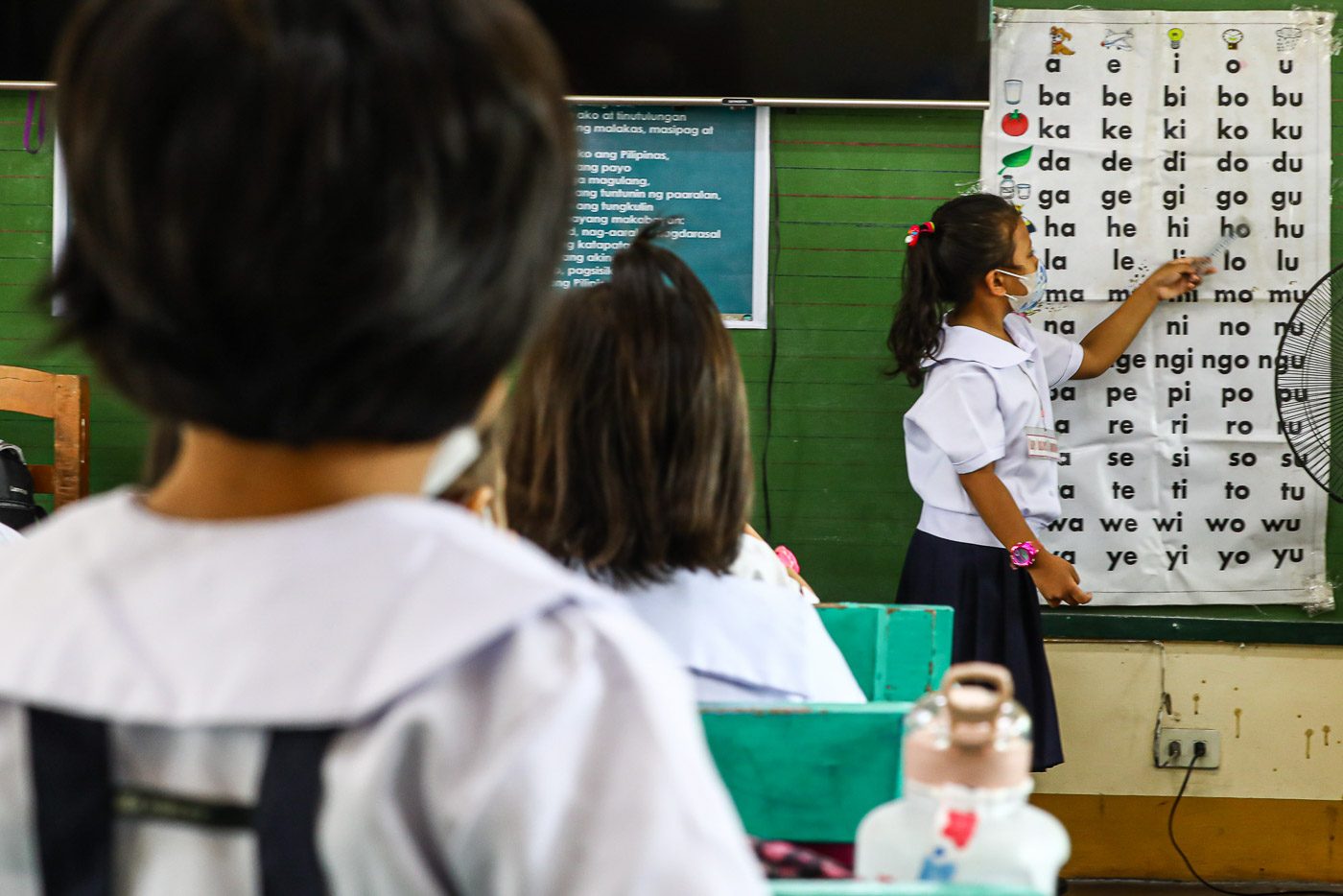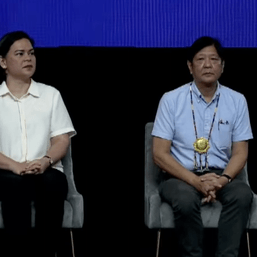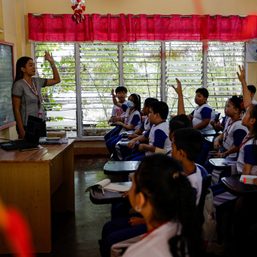SUMMARY
This is AI generated summarization, which may have errors. For context, always refer to the full article.

(Editor’s note: An earlier version of this story referred to the respondents as the students rather than Filipino adults.)
MANILA, Philippines – Only a small percentage of Filipino adults prefer the use of local language as a medium of instruction for grades 1-3, according to a Pulse Asia survey commissioned by Senator Sherwin Gatchalian.
Around 38% of the respondents said they prefer their vernacular or local language. Meanwhile, 88% said they prefer Filipino, the country’s national language, while 71 chose English. The survey was done from September 17 to 21, 2022, and allowed respondents to pick multiple responses.
In a statement on Saturday, February 4, Gatchalian said 1,200 respondents participated in the survey. The respondents were adult Filipinos, with a sampling error at national level of +/- 3%.

Across major island groups and the National Capital Region, Filipino received the highest percentage: 97% in Metro Manila, 84% in Balanced Luzon, 89% in Visayas, and 87% in Mindanao. Meanwhile, local language received the lowest percentage across the island groups.
Based on the respondents’ social class, the groups ABC (88%), D (90%), and E (70%) all preferred Filipino. Across classes, local language was also the least picked language of instruction.
Section 2 of Republic Act No. 10533 or the Enhanced Basic Education Act of 2013, also known as K to 12, mandates making “education learner-oriented and responsive to the needs, cognitive and cultural capacity, the circumstances and diversity of learners, schools and communities through the appropriate languages of teaching and learning, including mother tongue as a learning resource.”
Section 4 said the instruction, teaching materials, and assessment of students from kindergarten up to Grade 3 shall be based on the learner’s regional or native language.
“The Department of Education (DepEd) shall formulate a mother language transition program from Grade 4 to Grade 6 so that Filipino and English shall be gradually introduced as languages of instruction until such time when these two languages can become the primary languages of instruction at the secondary level,” that section of the law read.
The same law ensures that the curriculum for learners “shall adhere to the principles and framework of Mother Tongue-Based Multilingual Education (MTB-MLE).”
Review
In his statement, Gatchalian – chair of the Senate committee on basic education – said he will launch a “thorough and rigorous review” of the MTB-MLE’s implementation. In 2022, the senator already filed Senate Resolution No. 5, which sought to review the K to 12’s implementation.
According to Gatchalian, it was revealed in 2022 that only 72,872 out of 305,099 educators underwent training for the mother tongue-based education. The number includes supervisors, school heads, and teachers from kindergarten up to Grade 3.
“Batay sa nakikita natin sa kakayahan ng ating mga paaralan at sa sentimyento ng ating mga kababayan, kinakailangang pag-aralan natin kung ano ang mga susunod na hakbang natin sa paggamit ng mother tongue. Kung ipagpapatuloy man natin ang polisiyang ito, kailangan nating tugunan ang mga hamong kinakaharap nito,” the senator added.
(Based on what we see in our schools’ capacity and the sentiments of our fellow countrymen, we need to think of next steps in implementing mother tongue. If ever we will continue this policy, we need to address the problems that come with it.) – Rappler.com
Add a comment
How does this make you feel?

![[The Slingshot] Red zipper on the mouth of Sara Duterte](https://www.rappler.com/tachyon/2024/04/TL-red-zipper-sara-duterte-april-12-2024.jpg?resize=257%2C257&crop=335px%2C0px%2C720px%2C720px)

![[OPINION] How about setting up a heat health warning system in PH schools?](https://www.rappler.com/tachyon/2024/04/heat-health-warning-system-in-PH-schools.jpg?resize=257%2C257&crop_strategy=attention)

There are no comments yet. Add your comment to start the conversation.